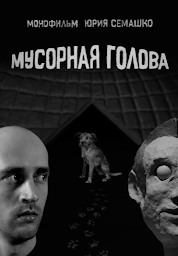I no longer want to pass any judgement. Each year is exactly like The Fall as described by John Peel: always different, always the same.
10. Marnie Stern - The Comeback Kid
To me, Marnie Stern's comeback was one of the nicest surprises of the year. The album clocks in at 28 minutes, with not a second wasted. The melodies are mercurial and hook-filled, and when the whole thing is over, you want to play it all over again. Math-rock is mostly about the details, and the details here are absolutely euphoric.
Best song: "Nested"
9. Robert Forster - The Candle And The Flame
There is a heavy and emotional story behind this album, and the music is informed by it. However, even if you come here without any background knowledge, you will be struck by the intelligent, introspective songwriting filled with personality and wit. A couple of uneventful country-tinged ballads aside, this is quite brilliant.
Best song: "The Roads"
8. Baxter Dury - I Thought I Was Better Than You
If I am slightly disappointed with this album, it is only because I hold Baxter Dury in very high esteem. The excellently titled I Thought I Was Better Than You is merely 27 minutes long, and a couple of artistic choices are suspect, but he is such a good songwriter that he can thrill with so little. The melodies are as sharp as ever.
Best song: "Aylesbury Boy"
7. ANOHNI - My Back Was A Bridge For You To Cross
I had not enjoyed an Anthony Hegarty album as much as this since I Am A Bird Now (2005). This new LP is not trying to be difficult (the way Hopelessness tried to do, even with its cover). Instead, the sound is soulful, powerful and appealing without compromising on the personality.
Best song: "Rest"
6. Black Country, New Road - Live At Bush Hall
If anything, the BC,NR concert I attended this autumn made me appreciate the album even more. Because behind the whimsical vocals and eccentric chord changes, there are great musicians who know exactly where their strengths lie. Recorded live following the sudden departure of their vocalist/lyricist, Live At Bush Hall featured new material that could break your heart without giving you any idea why.
Best song: "Dancers"
5. Sparks - The Girl Is Crying In Her Latte
With a tacky cover and the previous album being somewhat of a disappointment, I was apprehensive. But I needn't have been: The Girl Is Crying In Her Latte is one of their best this century. It is diverse, witty, wildly melodic and has more things to say, artistically and creatively, than almost anyone around. Plus, "It's Sunny Today" is a charming update of Lou Reed's immortal "Perfect Day".
Best song: "Take Me For A Ride"
4. PJ Harvey - I Inside The Old Year Dying
This should be taken as an album, not merely a collection of songs. Inspired by a poem she had written in Dorset's archaic dialect, I Inside The Old Year Dying is dark, folk-ish and unsettling. Would be impenetrable, too (what with those lyrics), were it not infused with her songwriting sensibilities. PJ's proclivity for artistic rebirth is unmatched by anyone.
Best song: "I Inside The Old I Dying"
3. Nicky Wire - Intimism
This was another pleasant surprise. Nicky Wire had hardly been known as a great songwriter (as evidenced by a quick comparison between James Dean Bradfield's and Wire's first solo albums), but this was terrific. Anthemic, clever, lush, catchy songs featuring uplifting lyrics and an unexpected dig at socialism. A joy, really.
Best song: "White Musk"
2. Peter Gabriel - i/o
I may be growing old after all, I do not know, but Peter Gabriel's first album of all-new material in 20 years has almost topped this list. With 12 songs put out monthly over the course of 2023, i/o was finally released on the 1st of December. He had trinkled with it a lot, obviously, but it was almost worth it. A vast and serious album, with big choruses, elaborate arrangements and messages that seem too wise for our times.
Best song: "Four Kinds Of Horses"
1. Grian Chatten - Chaos For The Fly
I will have to repeat what I said back in June: as soon as I heard that Grian Chatten (of Fontaines D.C.) composed the entirety of this LP while walking on the beach once, staring at the Irish Sea, I knew this would be my album of the year. And it is. Chaos For The Fly is both raw and lush, its lyrics hit very hard (isn't "All Of The People" a bit too much, though?) and its melodic substance grips you and never lets go.
Best song: "Fairlies"
***
Song of the Year.
Head says "Four Kinds Of Horses" by Peter Gabriel. Heart says it's "Kałychanka" by Lavon Volski, and it is heart I'm going for this year.











